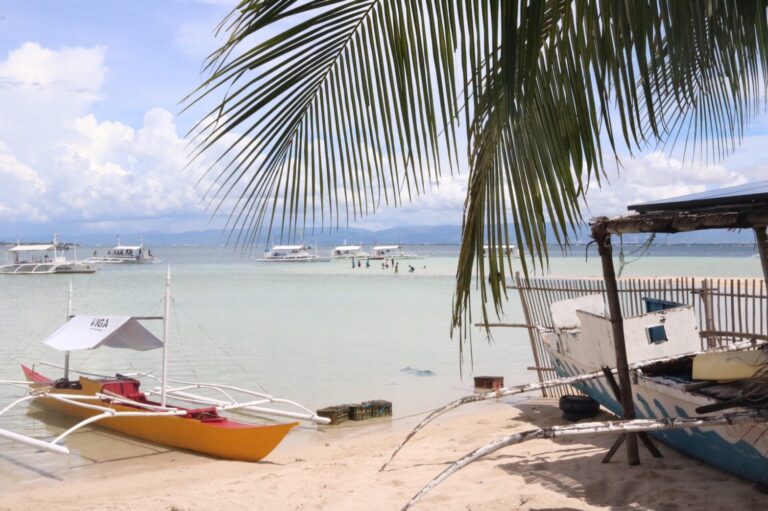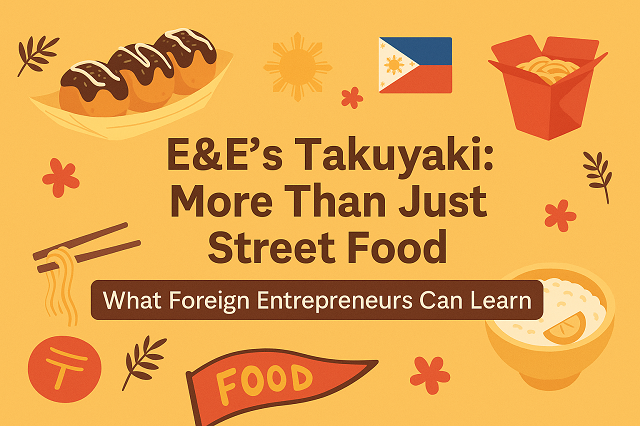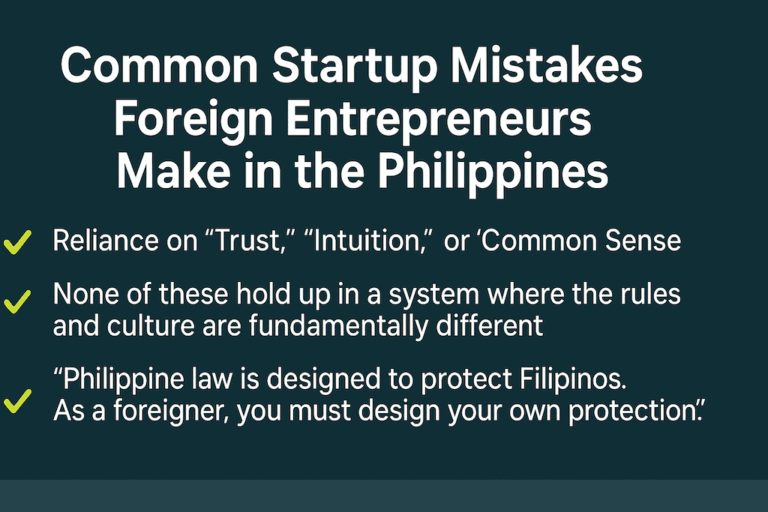Poker, Diplomats, and Deception: Scams Every Foreigner Should Know in the Philippines
Contents
- 1 Poker, Diplomats, and Deception: Scams Every Foreigner Should Know in the Philippines
- 2 1. The Poker Scam: How a Friendly Invitation Becomes a Financial Trap
- 3 2. The Fake Diplomat or Businessman: Sophisticated Lies with a Suit and Smile
- 4 3. Why These Scams Work: Psychology, Politeness, and Cultural Misunderstanding
- 5 4. Other Common Tourist Scams in the Philippines (Quick List)
- 5.1 🏧 1. ATM Skimming
- 5.2 🚕 2. Overcharging Taxi or Tricycle Rides
- 5.3 🎫 3. Fake Tour Guides or “Helpers” at Tourist Spots
- 5.4 💼 4. Lost Baggage Scam at Airport or Bus Terminal
- 5.5 🏨 5. Fake Hotel Booking Websites
- 5.6 💡 6. Too-Good-To-Be-True Promos on Social Media
- 5.7 🔑 Key Lesson: Trust Cautiously, Not Blindly
- 6 5. How to Stay Safe: Tips Every Foreigner Should Follow
- 6.1 ✅ 1. Trust Your Gut—Always
- 6.2 🧠 2. Be Friendly, Not Naive
- 6.3 📱 3. Use Technology to Your Advantage
- 6.4 💳 4. Handle Money Smartly
- 6.5 🧾 5. Verify Before You Trust
- 6.6 🙅♂️ 6. Learn to Say “No” Politely But Firmly
- 6.7 🧳 7. Be Discreet With Your Lifestyle
- 6.8 👥 8. Build a Local Support Network
- 6.9 💬 Final Thought: Awareness Is Empowerment
- 7 Conclusion: Stay Sharp, Stay Safe, and Enjoy the Philippines
Poker, Diplomats, and Deception: Scams Every Foreigner Should Know in the Philippines
The Philippines is often described as a tropical paradise—white sand beaches, warm smiles, delicious food, and affordable English education. From Cebu to Manila, it’s become one of the most popular destinations for backpackers, digital nomads, language students, and retirees seeking both adventure and affordability.
But for every sunset selfie and island-hopping tour, there’s a hidden danger that many visitors don’t expect: scams targeting foreigners.
Whether you’re a first-time traveler or an experienced expat, being a foreigner in the Philippines comes with certain risks—especially if you let your guard down.
And while petty theft and pickpocketing do occur, there’s a more calculated and manipulative type of scam that has trapped countless unsuspecting tourists and students:
The friendly invitation to a poker game.
The charming “diplomat” who just wants a quick favor.
The stranger who insists, “You remind me of my cousin in Tokyo.”
These scams aren’t just urban legends. They’re real, organized, and often emotionally devastating—not to mention financially painful. Victims have lost hundreds, even thousands of dollars. Some have been emotionally manipulated. Others were threatened or intimidated into compliance. And nearly all of them shared one thing in common:
They never saw it coming.
In this article, we’ll take a hard look at some of the most common and dangerous scams that target foreigners in the Philippines. We’ll dive deep into:
-
How the infamous “poker scam” works, step-by-step
-
The rise of the “fake diplomat” or “international businessman” setup
-
Why friendly strangers on the street might be part of something much bigger
-
And most importantly: How to protect yourself
Because while the Philippines truly is a beautiful place filled with kind and generous people, it’s also a country where naïveté can be exploited—especially if you look like a tourist, sound like a foreigner, or act like someone who’s too polite to say “No.”
Don’t let your dream trip turn into a nightmare.
Let’s expose the tricks—so you don’t get played.
1. The Poker Scam: How a Friendly Invitation Becomes a Financial Trap
It usually starts with a smile.
You’re walking through a mall in Cebu, maybe near Ayala Center or SM City. A well-dressed local—or sometimes even a foreigner—approaches you with a friendly tone.
“Hey! Are you Japanese? Korean? I’ve been to Tokyo before! I have a cousin there!”
The conversation is light, casual, and surprisingly pleasant. They don’t ask for money. They just want to chat. You’re caught off guard, but you appreciate the warmth. After a few minutes, they mention that it’s their uncle’s birthday, or they’re having a family gathering, or they’re just hanging out with friends playing cards nearby.
“You should join! We’d love to have someone like you. You’ll meet my cousin—she speaks great English!”
It feels safe. Friendly. Maybe even fun.
So you agree.
That’s when the real game begins.
🎲 Inside the Trap: How the Scam Works
You’re led to an apartment or condo unit nearby—nothing suspicious, maybe even upscale. Inside, there are a few other people, casually chatting and smiling. Drinks are offered. Shoes come off. Music is playing. It feels like a chill home gathering.
Then someone pulls out a deck of cards.
“We’re just playing a quick round of poker,” they say. “Low stakes. Just for fun!”
You’re invited to join in—and if you hesitate, they’ll encourage you. “Don’t worry, I’ll lend you the money,” one says. Another tells you, “We just want to make it more exciting.”
And then you start losing.
At first, it seems like bad luck. But soon, you realize something’s wrong.
No matter what you do, you can’t win. The other players are somehow always one step ahead. Their facial expressions seem rehearsed. Their movements too perfect. You’re being played—and not just in poker.
By the time you try to walk away, they hit you with the numbers:
“You owe ₱20,000.”
“You can pay by ATM or GCash. We’ll go with you.”
Some become aggressive. Others guilt-trip you. Some may even suggest you’re “dishonoring the family” by refusing to pay. The atmosphere shifts quickly—from friendly to threatening.
Even if you haven’t signed anything, the pressure is real. Many victims comply out of fear, confusion, or embarrassment. And once the money is paid, the scammers disappear. You never see them again.
⚠️ Who They Target
-
Tourists traveling alone
-
Short-term language students (especially Asians)
-
Foreigners who look “polite” or “non-confrontational”
-
First-time visitors unfamiliar with Filipino social dynamics
🧠 Why It Works
This scam plays on:
-
Cultural politeness (especially among Japanese, Korean, and Taiwanese travelers)
-
Desire to be friendly and open in a new country
-
Lack of suspicion due to the informal, non-threatening approach
It’s not about gambling. It’s about emotional manipulation and social engineering.
✅ Key Takeaway
If someone you don’t know invites you to a private space—no matter how friendly they seem—say no.
If they offer gambling, drinks, or “quick fun” in an apartment or hotel room—say no again.
And if something feels off, trust your gut and walk away.
In the next section, we’ll look at another dangerous con:
The fake diplomat or international businessman with a smile—and a scam just as clever.
2. The Fake Diplomat or Businessman: Sophisticated Lies with a Suit and Smile
Not all scams in the Philippines start with cards or casual conversations. Some wear suits. Speak perfect English. Even carry fake business cards or government IDs. These scammers don’t just target your wallet—they target your trust, your curiosity, and your desire to make meaningful connections abroad.
They’re the “diplomat” or “foreign businessman” types—and they’re some of the most convincing con artists you’ll ever meet.
🕴️ The Setup: Too Good to Be True
It usually happens in public, yet private-enough spaces:
-
An upscale mall
-
A quiet coffee shop
-
The hotel lobby where you’re staying
A well-dressed man (or sometimes a woman) approaches you politely. He introduces himself as a diplomat, international investor, or NGO worker. His story is carefully crafted:
-
He’s from Singapore, the U.K., or Dubai
-
He’s working on a “project” in the Philippines
-
He “loves meeting smart foreigners like you”
You’re flattered. The conversation flows. He might talk about travel, business, international development, or languages. His English is fluent, his manner professional. Before you know it, you feel like you’ve met someone special. Trustworthy. Important.
That’s the trap.
💸 The Hook: A Quick Favor, a Game, or a Deal
Just when you think it’s a nice connection, he introduces a casual opportunity:
“Why don’t you meet my family? They’re having lunch at our condo nearby.”
“I’d love to teach you some business basics—are you free this afternoon?”
“We sometimes play poker or bridge—just friendly games with diplomats.”
Or worse:
“Can you help me transfer some money? My account is frozen temporarily.”
“Would you mind holding some cash or goods for me at customs?”
“If you invest just a little, I can guarantee 10x returns within a week.”
The moment you **step into their environment—apartment, car, private room—**the con begins.
Just like the poker scam, these situations can quickly escalate to:
-
Rigged games
-
Pressure to invest
-
Emotional manipulation (“I trusted you!”)
-
Intimidation (“You’re already involved—don’t back out now”)
🧠 Why It Works
-
Professional image: They look educated, cultured, and harmless.
-
Status manipulation: “Diplomat” or “Investor” implies credibility.
-
Psychological leverage: You don’t want to offend or appear rude.
-
Globalization appeal: They flatter your international identity—“You’re different from other tourists.”
These scammers prey on people who are ambitious, open-minded, and eager to connect—the very same traits that bring people to study or travel abroad in the first place.
🚩 Warning Signs
-
Overly friendly strangers with big titles
-
Invitations to private locations too quickly
-
Complex stories involving money, politics, or international business
-
Promises of easy money or exclusive connections
Remember:
Real diplomats don’t randomly recruit strangers in coffee shops.
Real investors don’t ask tourists for help moving funds.
And real people with good intentions won’t pressure you into risky situations.
In the next section, we’ll dig deeper into why these scams are so effective, not just in the Philippines—but anywhere in the world where politeness and curiosity collide with deception.
3. Why These Scams Work: Psychology, Politeness, and Cultural Misunderstanding
You might wonder:
“How can smart, educated, well-traveled people fall for such obvious scams?”
The answer lies not in intelligence—but in human psychology.
These scams are carefully engineered to bypass your logic and target your emotions, your cultural habits, and your natural desire to connect.
Let’s break it down.
🧠 1. Social Engineering 101: The Illusion of Safety
Scammers don’t start by asking for money. They start by building rapport.
They use flattery, mirroring, and shared interests to create a sense of trust:
-
“You remind me of someone I admire.”
-
“I love your culture. I studied in your country!”
-
“You seem like a really kind and respectful person.”
Once trust is established—even just 10 minutes of it—your defenses drop.
You’re no longer assessing risk. You’re engaging in what feels like a safe social exchange. That’s when they act.
🙇♂️ 2. Politeness as a Weakness
In many Asian cultures—Japan, Korea, Taiwan, even the Philippines—politeness is deeply ingrained. People are raised to be:
-
Non-confrontational
-
Respectful to elders or authority figures
-
Avoidant of saying “No” directly
Scammers know this.
So they put you in situations where saying “No” feels rude:
-
“Come on, just one drink—it’s my birthday.”
-
“You’ll hurt my feelings if you refuse.”
-
“Don’t be so serious, it’s just a game!”
Suddenly, you’re not in control.
You’re emotionally manipulated into staying—even when every instinct is screaming for you to leave.
🌏 3. Cultural Misunderstanding and Misplaced Trust
Many foreigners come to the Philippines expecting warmth and hospitality—and rightfully so. Filipinos are known for being friendly and generous. But scammers exploit this cultural expectation.
They mimic real kindness. They act like friendly locals who “just want to help.”
And in multicultural settings like ESL schools or tourist hubs, people often confuse openness with honesty.
Also, some foreigners assume that fellow foreigners are safer. This is why many scams involve foreign-looking con artists—Koreans, Chinese, Malaysians, even fellow Westerners. It’s a psychological trick:
“If he’s like me, he can’t be dangerous.”
🤯 4. Cognitive Dissonance: “This Can’t Be Happening to Me”
Even when red flags appear, many victims don’t act right away.
Why? Because doing so would mean admitting they were wrong—or worse, that they were naïve.
This leads to a psychological trap called cognitive dissonance:
-
“I said yes, so it must be okay.”
-
“I’ve already spent an hour here, I might as well stay.”
-
“They’re being nice… I’m just overthinking.”
By the time they realize it’s a scam, it’s often too late.
🚨 Key Takeaway: It’s Not About Intelligence—It’s About Awareness
Scams work because they exploit the best parts of us:
Our kindness. Our openness. Our willingness to trust.
But being kind doesn’t mean being naive.
Being open doesn’t mean being careless.
And being a traveler doesn’t mean being a target.
In the next section, we’ll look at other common scams in the Philippines—from ATM fraud to fake tour guides—and how you can spot them before they spot you.
4. Other Common Tourist Scams in the Philippines (Quick List)
While the poker and diplomat scams are among the most emotionally manipulative, they’re far from the only ones. Many tourists and ESL students encounter smaller, more frequent scams that may not make headlines—but can still ruin a trip or drain your savings.
Here are some of the most common scams targeting foreigners in the Philippines, and how to spot them before it’s too late.
🏧 1. ATM Skimming
The Scam:
Criminals install hidden card readers and tiny cameras on ATM machines to capture your card details and PIN.
Where It Happens:
Standalone ATMs in convenience stores, near small malls, or in poorly lit areas.
How to Protect Yourself:
-
Use ATMs inside banks or major malls only.
-
Cover your PIN with your hand.
-
Check for loose or tampered parts on the ATM.
🚕 2. Overcharging Taxi or Tricycle Rides
The Scam:
Drivers claim the meter is “broken” or quote an outrageous flat rate, especially late at night or in tourist areas.
Where It Happens:
Airports, ferry terminals, and nightlife districts like Mango Avenue or Mactan.
How to Protect Yourself:
-
Always insist on using the meter.
-
Use ride-hailing apps like Grab when possible.
-
Ask locals or your hotel about standard rates beforehand.
🎫 3. Fake Tour Guides or “Helpers” at Tourist Spots
The Scam:
A friendly person offers to show you around or help you take pictures, then demands a tip or fee afterward—sometimes aggressively.
Where It Happens:
Popular spots like Magellan’s Cross, Fort San Pedro, or Taoist Temple.
How to Protect Yourself:
-
Decline unsolicited help politely but firmly.
-
Hire only accredited guides or book through your hotel.
-
Don’t hand over your phone or valuables to strangers.
💼 4. Lost Baggage Scam at Airport or Bus Terminal
The Scam:
Someone “accidentally” grabs your luggage, then returns it for a tip—or swaps it with a similar-looking but empty bag.
Where It Happens:
Ninoy Aquino International Airport (NAIA), Cebu South Bus Terminal, ferry ports.
How to Protect Yourself:
-
Keep your eye on your bags at all times.
-
Use unique tags or ribbons to distinguish your luggage.
-
Never leave your belongings unattended, even for a minute.
🏨 5. Fake Hotel Booking Websites
The Scam:
You book through a site that looks real but isn’t. You pay in full—and arrive to find there’s no reservation.
Where It Happens:
Online, especially when searching for “cheap Cebu hotels” or “budget stays.”
How to Protect Yourself:
-
Book through trusted platforms like Agoda, Booking.com, or the hotel’s official site.
-
Avoid sites that only accept wire transfers or untraceable payment methods.
-
Double-check confirmation emails and contact the hotel directly to verify.
💡 6. Too-Good-To-Be-True Promos on Social Media
The Scam:
You see a Facebook post offering 70% off tours, spa treatments, or resort stays. Once you pay, the page disappears—or they never show up.
Where It Happens:
Facebook Marketplace, Instagram, TikTok.
How to Protect Yourself:
-
Avoid clicking sketchy links or paying through unsecured channels.
-
Read reviews and check if the business has a legit presence elsewhere.
-
Remember: If it’s too good to be true, it probably is.
🔑 Key Lesson: Trust Cautiously, Not Blindly
Not all scams involve criminal masterminds.
Some are simple tricks powered by confidence and your natural desire to be polite or get a good deal.
Your best protection?
-
Awareness
-
Preparation
-
The confidence to say “No” when something feels off
Next, we’ll give you a practical survival toolkit: How to Stay Safe in the Philippines—even if it’s your first time here.
5. How to Stay Safe: Tips Every Foreigner Should Follow
You’ve read the stories.
You’ve seen how scams work.
Now, it’s time to equip yourself with real-world strategies to avoid becoming the next victim.
Here are some practical safety tips that every foreigner—whether you’re a tourist, digital nomad, or ESL student—should follow while living or traveling in the Philippines.
✅ 1. Trust Your Gut—Always
If something feels off, even slightly—walk away.
No explanation needed.
You don’t owe anyone your time, your presence, or your money.
“Better rude than robbed.”
🧠 2. Be Friendly, Not Naive
Filipinos are genuinely warm and welcoming. But not everyone who smiles at you is your friend.
-
Avoid giving personal info (where you stay, how long you’ll be in town, etc.) to strangers.
-
Keep first conversations in public places.
-
Don’t accept invitations to private locations with people you just met.
📱 3. Use Technology to Your Advantage
-
Grab app for transportation: safer and more transparent than hailing taxis.
-
Google Maps to track your location—don’t rely 100% on drivers.
-
Translation apps or phrasebooks to bridge communication gaps.
Always share your location with a friend or trusted contact when meeting someone new.
💳 4. Handle Money Smartly
-
Carry small bills for daily use, keep large amounts in a hotel safe.
-
Avoid counting or showing money in public.
-
Use ATMs inside malls or banks—never outside convenience stores.
-
For international cards, set withdrawal limits via your bank’s mobile app if possible.
🧾 5. Verify Before You Trust
Whether it’s a hotel, a tour, or a new friend:
-
Google them
-
Check reviews
-
Ask locals or your school/hotel staff
If you receive an offer that sounds incredible—double-check it. Real businesses don’t pressure you into quick decisions.
🙅♂️ 6. Learn to Say “No” Politely But Firmly
Scammers rely on your discomfort with confrontation. Practice phrases like:
-
“No thanks, I’m busy.”
-
“I’m not interested.”
-
“Sorry, I have other plans.”
Say it, smile, and walk away.
You are not being rude—you are protecting yourself.
🧳 7. Be Discreet With Your Lifestyle
Don’t flaunt wealth. Don’t dress like a walking ATM.
Blend in when possible, especially in crowded areas.
Also:
-
Leave passports in your hotel safe. Carry a copy or photo instead.
-
Don’t wear expensive jewelry or watches in unfamiliar areas.
-
Be cautious when posting real-time updates on social media (especially locations).
👥 8. Build a Local Support Network
Whether it’s:
-
Your ESL school
-
A local friend
-
A foreigner support group online
Having people to turn to can make all the difference in a confusing or dangerous situation.
💬 Final Thought: Awareness Is Empowerment
The goal isn’t to make you paranoid.
It’s to make you prepared. Because when you’re aware of the risks, you’re free to enjoy everything the Philippines has to offer—without fear.
Scams may be part of reality, but they don’t define your experience.
Be smart. Be calm. Be kind—but cautious.
And remember:
“The best way to stay safe abroad is to combine an open heart with a clear head.”
Conclusion: Stay Sharp, Stay Safe, and Enjoy the Philippines
The Philippines is a land of contrast.
It’s where vibrant street markets meet world-class beaches, and where strangers can become lifelong friends over a shared bowl of halo-halo. But like any country, it has its darker corners—especially for foreigners unfamiliar with the local landscape.
Scams, unfortunately, are a part of that reality.
From cleverly orchestrated poker games to fake diplomats with polished accents, the goal is always the same: gain your trust, then take advantage of it.
But knowing how these scams work—and why they work—gives you an edge.
You now understand:
-
The emotional and psychological tactics scammers use
-
The common schemes targeting ESL students and tourists alike
-
The small but powerful habits that can protect you in big ways
Most importantly, you’ve learned that safety doesn’t mean isolation.
You can still explore, meet people, and experience the Philippines fully.
You just need to be smart about who you trust and intentional with your choices.
So go ahead—study hard, make friends, take jeepney rides, and swim with whale sharks.
Just do it with open eyes and a clear sense of boundaries.
Because the more aware you are, the more free you’ll be to enjoy everything the Philippines truly has to offer.
Stay alert. Stay curious.
And above all—stay safe.






![Beyond Chocolate Hills and Tarsiers: Your Complete Guide to Exploring Bohol Island [2025 Edition]](https://studyenglishdirect.com/wp-content/uploads/2025/05/DSCF7150-e1489128665883-768x576.jpg)
